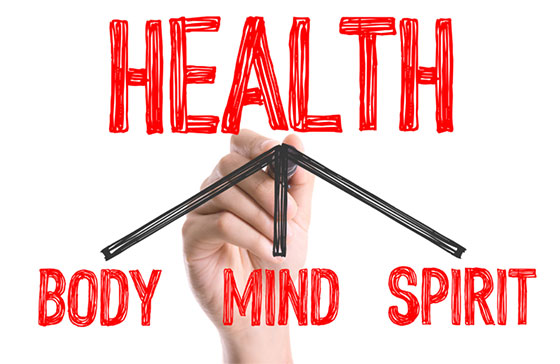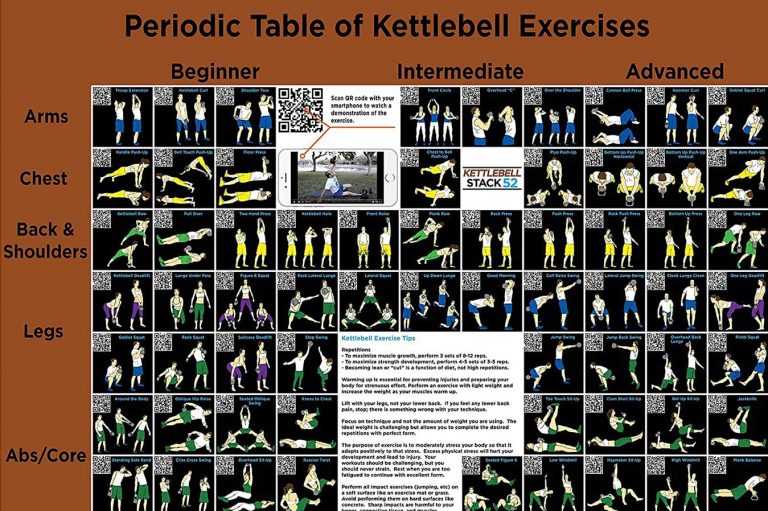When it comes to exercise most people only think about the physical benefits. Weight loss, improved cardio, and greater strength are all excellent goals to strive towards. However, mental health and happiness for one’s own well-being are something that should take priority in life too. As such, a person who practices mind-body exercise may see positive results in both areas of health.
So what exactly does mind-body exercise mean? There’s a misconception that only slower forms of physical activity accurately describe this term. While it’s true that yoga and pilates are commonly associated with this practice, the speed of exercising is irrelevant. Here’s how the National Cancer Institute defines it:
A form of exercise that combines body movement, mental focus, and controlled breathing to improve strength, balance, flexibility, and overall health. Examples of mind-body exercises are yoga, tai chi, and qigong.
If we go with what NCI states then there is a lot of room for interpretation. Of course, all forms of exercise require some sort of body movement. Mental focus and controlled breathing, on the other hand, aren’t generally considered part of a typical workout routine. For example, when performing jumping jacks one isn’t usually actively thinking about their individual movements and how they breathe.
Why Mind-Body Exercise Is Good For You

When discussing mental health it’s crucial to understand the many distinctions involved. Yes, it’s important to read and engage the brain in critical thought processes. However, those things relate to intelligence and creativity. That doesn’t necessarily correlate with the well-being of the mind. Rather, as it relates to this subject, the object is to improve beneficial emotional states while reducing negative ones.
Stress & Anxiety
Stress is perhaps the number one obstacle to achieving harmony of the mind. Unfortunately, situations and life happen and when a negative event occurs it is natural to dwell and worry. There are multiple ways to deal with stress including both good and bad. Some people may cope by over-eating which will only lead to further stress later on. Instead, it’s best to relieve anxiety by focusing on another task.
When exercising, stress hormones like adrenaline and cortisol become reduced while mood-enhancing endorphins increase greatly. Therefore, it’s only natural to assume that a mind-body exercise would have even a greater effect. When there is less stress in your life you’re much more apt to feel happy and energetic.
Depression

People handle depression in various ways. Some are able to hide it more so than others but that doesn’t make the problem go away. To the outsider, a depressed person may not have any apparent cause for feeling so. In fact, this negative state of mind might happen for no reason at all.
It’s vital to focus not on a reason but on what might cause depression. These causes range from complex issues like brain chemistry imbalance to more subtle things like lifestyle choices. Like stress, working a mind-body connection can combat depression by producing more of those positive mood-alternating chemicals.
Sleeping
Obviously, sleeping is a physical state and not an emotional state. Although the amount of time spent sleeping in a day directly affects mood and demeanor. Individuals operating on just a few hours of sleep are likely to feel more fatigued and irritable. Contrast that with someone who has had a solid night’s sleep for 8+ hours and is more productive and attentive during that day.
A recent study of breast cancer patients experiencing sleep problems showed interesting results from participants who engaged in mind-body exercising. Using various scientific metrics and standards the study determined that “sleep scores” improved for that group over the control group. It’s likely that this is due to a reduction in the two emotional states of stress/anxiety and depression mentioned earlier.
Which Mind-Body Exercise Practice Is The Best?
Unless there is a peer-reviewed study on the matter, almost any answer to this question will come with a bias. Yoga, pilates, and martial arts are all fine examples with proven benefits for cleansing the mind. Although I have no experience in these areas, I’m partial to another. Even if it is not yet prominently believed to be beneficial to both mind and body.
Kettlebell Training For Mental & Physical Health Benefits
Kettlebell exercises are a form of weight lifting that requires technical discipline for yielding the best results. Sure, there are many simple kettlebell workouts that need very little thought and aren’t centered on focus or controlled breathing. But when programmed appropriately, a kettlebell workout may involve these two attributes for the ultimate physical and mental exercise plan.
There are such a variety of exercises available to do with a kettlebell that enables several options for pacing. Quick movements like the swing and snatch need precise coordination with various muscle groups that make focus and breathing necessary. On the slower side moves like the windmill trade speed and power for flexibility and range. Still, concentration is required by design as shown in the below example.
This video is just a demonstration of a single exercise. There’s no argument about the amount of focus needed. Controlled breathing, while not emphasized is still very important too. Just Google “kettlebell windmill breathing” and you’ll see a ton of results pop up.
Workouts that feature several different kettlebell moves need even more dedication to succeed with mind-body exercise. Factoring in counting the reps and sets of each move as well as the right steps to execute them makes things complicated quickly. It’s a rewarding balance of getting one’s brain and muscles in sync with each other.
A Challenging Mind-Body Exercise Kettlebell Workout
This full-body kettlebell workout is what is known as a flow because of how seamless each move progresses to the next. Designed by kettlebell trainer Taco Fleur, this unique pattern of exercises will test one’s physical abilities and mental acuity. However, with enough practice and patience performing this flow will soon become second nature. It’s not all that different from patterns in martial arts like Karate and Taekwondo that students must learn.
Based on all of the information presented on kettlebell training thus far, it’s safe to say that using kettlebells does offer mind-body exercise. There is no shortage of online workouts that utilize a kettlebell in this manner. Although, for newcomers, it’s important that the proper mechanics of each exercise are understood. Fortunately, there is one such program that explains what to do and what to avoid in highly detailed weekly kettlebell workouts.
These workouts are available to members of an exclusive group where feedback is available and any question is answered. I’ve been a part of this group for over a year now and we are fast approaching 100 members of all ages and abilities. It’s a great way to stay motivated and held accountable to reach your fitness goals.



